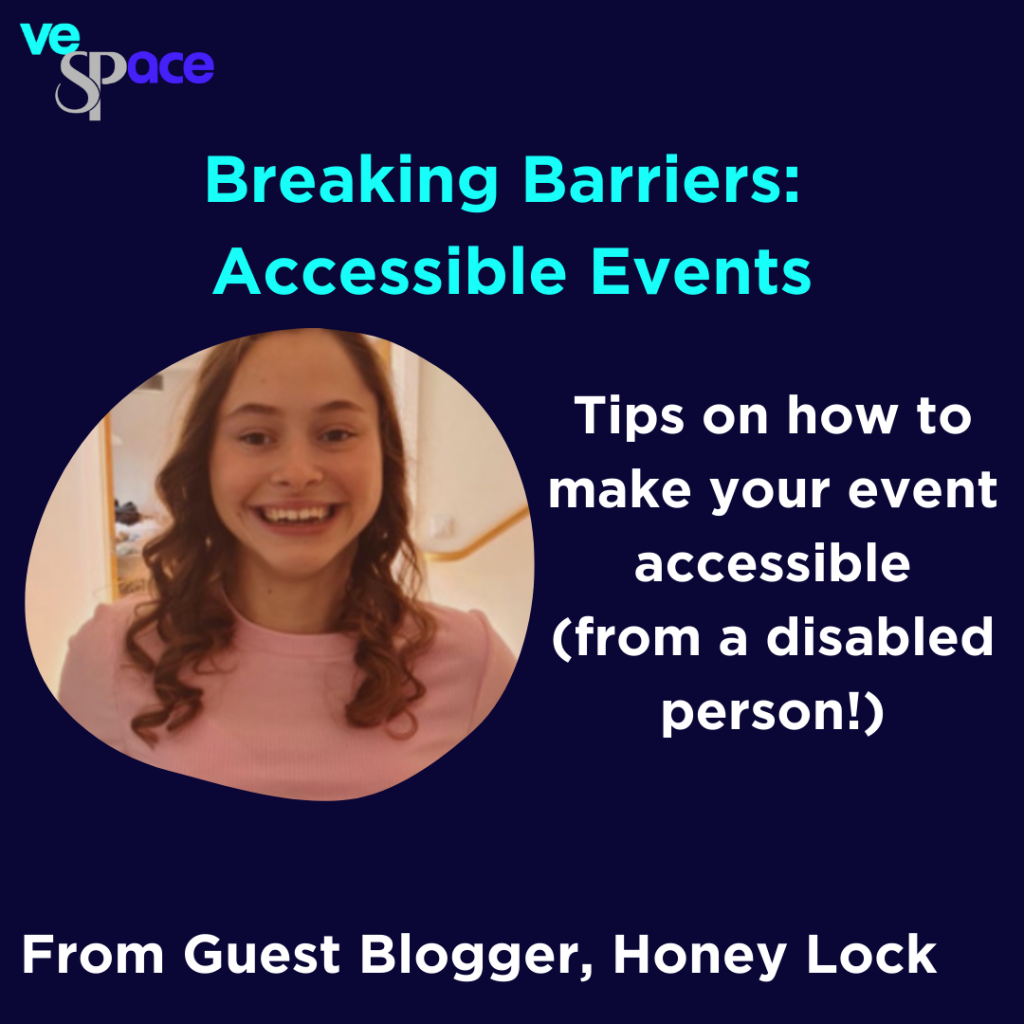My name is Honey Lock. I’m 19 years old and currently working a Placement period during my degree, at veSpace. I have quadriplegic Cerebral Palsy (CP), which affects all four limbs but predominantly my lower body, I use a wheelchair for long distances and a walking aid for short distances. I’m a trainee journalist and I’m passionate about making all events inclusive.
For disabled people, attending events should be as exciting and enjoyable as it is for everyone else. Whether it’s a concert, a lecture, a conference, or a family hotel stay, these experiences are about enjoyment. However, for many disabled people, there can be a number of barriers including lack of accessibility, lack of communication, and difficulty when booking accessible accommodation. This can make attendance for disabled people more difficult.
Creating an inclusive event doesn’t have to be stressful! Some small adjustments can make a huge difference in helping those with diverse needs feel at home at your events.
Here are some tips on how to make your event accessible (from a disabled person!):
1) Physical Access
This may sound simple, but it can be the difference between someone going to an event or not. As a disabled individual, I have been to many events and had trouble with wheelchair access, for example, venues only having partial access for wheelchair users.
Remember, accessibility goes beyond the venue entrance or just the main function room! You should be ensuring there is easy access to toilets, refreshment areas and accessible parking too. If there is dedicated accessible seating within the main function area, make sure there isn’t an obscured view!
2) Clear communication
Be sure to highlight accessibility features across promotional materials before and during the event. Let attendees know about accessible toileting facilities. Did you know that not all accessible toileting facilities can be used by all disabled people? This is due to not all disabled toilets catering to all a person’s needs. For example, a toilet can be deemed accessible if it contains a single handrail. However, for me, a toilet with a single handrail would not be ‘accessible,’ as I would be unable to use the toilet independently without having a second handrail to use.
Communication could also be improved by having maps around the venue to signpost accessible facilities or sensory-friendly spaces, as finding locations in venues can sometimes be challenging for some attendees. This can be achieved sustainably by utilising event apps.
It may also be helpful for venues to have accessible changing facilities for those who require them. Surprisingly, large changing spaces can be hard to come by despite most venues having baby changing areas. This means that those with higher support needs may struggle to attend events. If you can find one, a large ‘changing places’ facility is best.
3) Accessible Ticketing
My next tip for inclusive and accessible events is to make sure that if individuals are required to register for tickets for the event, use platforms that accommodate disabled users. This includes offering complimentary companion tickets, listing accessibility features, and ensuring there are many ways for your attendees to purchase those tickets both online and over the phone.
4) Quiet Spaces
Provide sensory-friendly spaces for those with neurodiverse needs or individuals who may need a break from noise and crowds. These spaces could include softer lighting, comfortable seating, and minimal distractions. Spaces like these can be vital for those with neurodiverse conditions, as they can find events overstimulating and need time for emotional and sensory-based regulation in order to get the most out of their event experience.
5) Sign Language Interpreters
Using sign language interpreters for any performances, panels or announcements throughout the event this can be helpful for those who are deaf or hard of hearing.
By following this list, event organisers can be certain that accessibility is embedded throughout their events from the very beginning.
Why is accessibility so important?
Accessibility is vital not just for disabled people and their diverse needs; it is also hugely important to highlight the environment that inclusive events can foster. These events can be a catalyst for promoting a sense of belonging and can also assist in showing that organisers value diversity. This helps to build a positive relationship with your audience.
Take the time to advocate for accessibility at the events you plan. The more we normalise these conversations, the closer we get to every event being a space for everyone.










